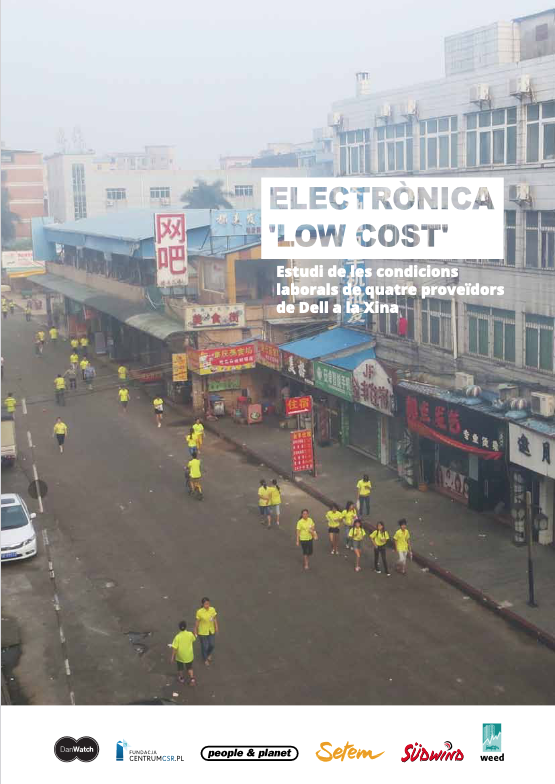This DanWatch research, supported by SETEM, describes the working conditions of four Dell-branded supplier factories in the Chinese provinces of Guangdong and Jiangsu.
The labour rights violations discovered violate ILO principles, Chinese labour law, the Electronic Industry Citizen Coalition (EICC) criteria and Dell’s own standards.
China, and specifically the city of Shenzen – in Guangdong province – has become the world factory. Electronics is one of the sectors that boosts the economy of the country, with thousands of companies that produce all kinds of products at a fast pace and that employ millions of people. Apart from the millions of domestic users, public administrations are the other major consumer of electronic products produced by China.
→ Made by DanWatch and China Labor Watch.
→ With the support and translationto catalan by SETEM Catalunya.
Grey violations of labour rights
The investigation revealed the existence of labor exploitation and serious violations of the
Chinese law, international conventions and human rights at four
Dell supplier factories established in Guangdong and Jiangsu5 provinces. Human resources agencies or factories themselves set age limits when selecting staff: aged 16 to 36, often is forced to move from the place of origin to find work and, once started working and is installed in the dense collective bedrooms, few are not satisfied with their situation.
Compulsory overtime
In the four factories studied, the working day was eight hours, and it was mandatory
Make between two and four extraordinary hours every day. The monthly number of overtime was from 48 to 136, which far exceeds the 36-hour limit set by Chinese law. In Mingshuo, in times of normal production, workers performed an additional 23 hours which, added to the 40 ordinary hours, is equivalent to working more than 60 hours a week, which violates the recommendations of the Electronic Industry Citizenship Coalition (EICC). In periods of peaks of work, the number of overtime hours skyrocketed, with days that can be as high as 73.5 hours. In all factories, six days a week were worked, although in times of peaks of work Mingshuo staff came to work 30 days in a row without a party day.



